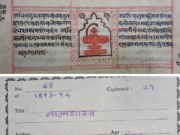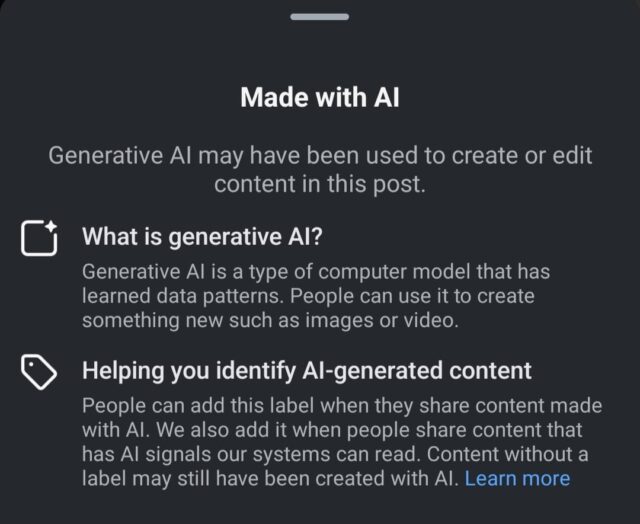Meta’s recent rollout of an AI-powered smart assistant across its apps — Instagram, Facebook, and WhatsApp — marks the dawn of an AI-driven era in one of its most critical markets, India. This integration places Artificial Intelligence (AI) at the forefront of daily user interactions, making it nearly impossible to avoid. However, this initiative has faced backlash as photographers and content creators reported their genuine work being mislabeled as AI-generated.
Meta’s “Made with AI” label, introduced to distinguish AI-generated content, has been inaccurately applied to real photos and videos. For instance, a post from the official Instagram account of the Kolkata Knight Riders, celebrating their IPL 2024 victory, was wrongly tagged as AI-generated.
News18’s further investigation revealed that several genuine Instagram reels were also appearing as “Made with AI”. It says, “Generative AI may have been used to create or edit content in this post.”
The Reel Issue
Regarding reels on Instagram, there is an attribution section below every reel that includes details about the reel’s content such as music, effects, hashtags, location, and creator. After checking several reels, it was found that while some of the reels appeared with a “Made with AI” tag in the attribution section, in some cases, when the “+1” tab is clicked with other details like creator, song, and location, “Made with AI” has been appearing.
When clicked on, a box pops up stating, “Made with AI. Generative AI may have been used to create or edit content in this post.” The popped-up box further states details like “What is Generative AI?” and “Helping you identify AI-generated content.”
The problem is many of those reels are genuine. For example, in a video of House of Dragon actress Emma D’Arcy, the attribution section includes the +1 tab which includes the “Made with AI” label. However, the fact is that the video is not from House of Dragons but a genuine video of the actress. Meanwhile, one reel about HBO’s House of Dragons’s promo videos with banners on monuments did not get this “Made with AI” tag.
Similarly, a reel showing high waves in Scotland was also found to have this tag, even though it appeared to be a genuine video, not AI-generated. There are several such examples, like pet animal reels, professional videographers or photographers’ reels, house cleaning reels, some vlogger’s reels about food, and even Bollywood actress Neena Gupta’s outfit-of-the-day video.
The AI Problem
It is still not clear why Meta’s platform Instagram is tagging these types of reels and pictures as “Made with AI.” While Meta hasn’t yet disclosed why this is happening, looking at the technology as a whole, it kind of makes sense why it’s messing up.
Meta introduced the “Made with AI” label to enhance transparency, but it’s currently misidentifying real photos and videos as AI-generated. This problem spans across Facebook, Instagram, and Threads, even affecting minimally edited content. The “Made with AI” label appears inconsistently, flagging some genuine content while overlooking actual AI-generated media.
The AI detection system might be overly aggressive, tagging content with characteristics associated with AI tools, such as edits, filters, or specific visual elements. The AI might be trained on a dataset with more AI-generated content than real photos and videos, leading it to prioritise identifying AI traits even in authentic media.
Currently, it looks like the system struggles to differentiate between genuine content with basic edits and fully AI-generated content. Simple edits, like colour correction or brightness adjustments, can be mistaken for AI generation. Tools using AI to edit pictures, such as removing objects, may also blur the line between simple editing and AI generation.
Meta’s “Made with AI” label might not distinguish between complex calculations used in simple edits and those in full-fledged AI generation. This could lead to even basic edits being flagged as AI manipulation, despite the core content being genuine.
Users encountering genuine content incorrectly flagged as “Made with AI” should report these errors to Meta to help refine the system. While the “Made with AI” label aims to be helpful, it might not be entirely accurate yet. So, users should not solely rely on this label to determine a post’s authenticity.
However, regarding this matter, a Meta spokesperson told News18: “Our intent has always been to help people know when they see content that has been made with AI. We are taking into account recent feedback and continue to evaluate our approach so that our labels reflect the amount of AI used in an image. We rely on industry-standard indicators that other companies include in content from their tools, so we’re actively working with these companies to improve the process so our labelling approach matches our intent.”






































